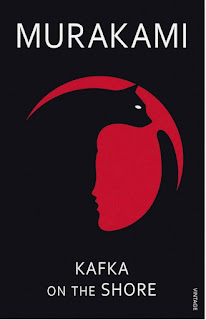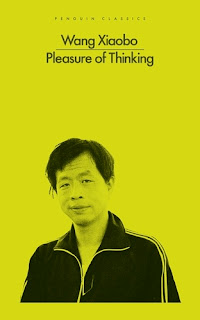With only a few days left for his engagement with Sibel, an educated young modern girl, the rich boy Kemal happens to meet his distant cousin Fusun, a lower middle-class student working part time as a salesgirl, and starts an affair with her. This affair kicks off a chain of events that shatters the lives of all three involved, leaving an obsessed and love-lorn Kemal in a long and arduous wait to win back Fusun. His only respite was the possession of petty articles that Fusun contacted, with which he could nurse her memories. Years later, these articles enabled him to build a museum dedicated to his love affair with Fusun.
The Museum of Innocence is a novel by Turkish writer Orhan Pamuk that is both a love story and, at the same time, an exploration of the connection between articles and the memories their presence evokes. Reading it reminded me of many other books that I had read before for several reasons. The loving portrayal of ordinary items that we use and discard without realising their emotional connection reminded me of Chilean poet Neruda's collection Odes to Common Things, in which the poet writes lovingly about common articles that we take for granted. The awkwardness of its love story reminded me of Marquez's magnum opus, Love in the Time of Cholera. The theme of collecting articles to remember a certain period in the past reminded me of the novel Time Shelter by Georgi Gospodinov, which won the International Booker Prize in 2023.
"It was the happiest moment of my life, though I did not know it". With this opening sentence, Pamuk gives two warnings to his reader. Firstly, the novel that begins with the happiest moment of its protagonist's life guarantees that we are in for a long, gloomy ride of tragic happenings. Second, the protagonist realises the happiest moment in hindsight, and the story is told in flashback. These realisations, along with Orhan Pamuk's fabulous writing, helped me navigate the 700 pages of plot that developed inside the mind of the most obsessive, awkward, and politically incorrect protagonist I have ever read in a fictional book. (In nonfiction, some autobiographies did the job.)
As Pamuk explained in an interview, this novel is an experiment, and the author has established an actual museum in Istanbul that exhibits various articles explained in the novel. His intention is to show the importance of ordinary items in daily life that we tend to forget and how everyday items induce memories in our minds due to the emotional connection that is established in the process of interacting with them. In the novel, the protagonist explains the Aristotelian principle that time is nothing but a line that connects different moments that we experience. He wants the artefacts of the museum to be that line that connects the spectators with the past moments and makes them appreciate the life story of Kemal and Fusun in a new light.
In the love story that he describes in the novel, Pamuk ensures that the reader too gets to experience this emotional connection with the lives of Kemal and Fusun through a detailed explanation of their everyday experiences. Pamuk describes Kemal's wretched condition in all its pathetic glory with painstaking detailing of his everyday interactions with his family, friends, and society, and with his obsession to get his love back. His fascination with the items that elicit Fusun's memories is also similarly enumerated. Though we hear the story from Kemal's point of view, the writer cleverly shows us the error of his ways and how his lack of judgement clearly ruins his and his loved ones' lives. The character of Fusun, who for most of the story remains just an ideal of Kemal's obsessive mind, takes on human form by the end, revealing her wants and aspirations.
The third important aspect of the novel is the conflict that the traditional mindset of its characters has with the European sensibilities they aspire for. Most of the time, they are all stranded in a limbo between tradition and modernity, which causes many decisions to be made by several characters in the plot. As an Indian reader, I was able to relate to this aspect of the story. Istanbul at the end of the twentieth century has a lot of similarities with the society that I grew up in. It is also interesting to observe that the book doesn't detail most of the political turbulence of the time. Though there are some mentions of the coups and the resultant curfews, except for a few mentions, the novel chooses to be apolitical. Instead, it chose to focus on the east-west conflict and Western aspirations of the community.
The Museum of Innocence may not display the ambitious storytelling of Pamuk's previous novels that I read. But it succeeds tremendously in its intentions: to portray the social and cultural structure of Istanbul in the last decades of the twentieth century; to tell a powerful love story of an unlikeable couple, for whom we feel sympathetic by the end; and to assert that it is the small events and articles that constitute the entire life. It tells us to celebrate them and relish in the memories they elicit.

%20(1).jpeg)
%20(2).jpeg)
%20(20).jpeg)


.jpeg)



%20(11).jpeg)



%20(31).jpeg)
%20(9).jpeg)
%20(8).jpeg)
%20(10).jpeg)


%20(7).jpeg)
%20(5).jpeg)
%20(3).jpeg)
%20(1).jpeg)
%20(2).jpeg)